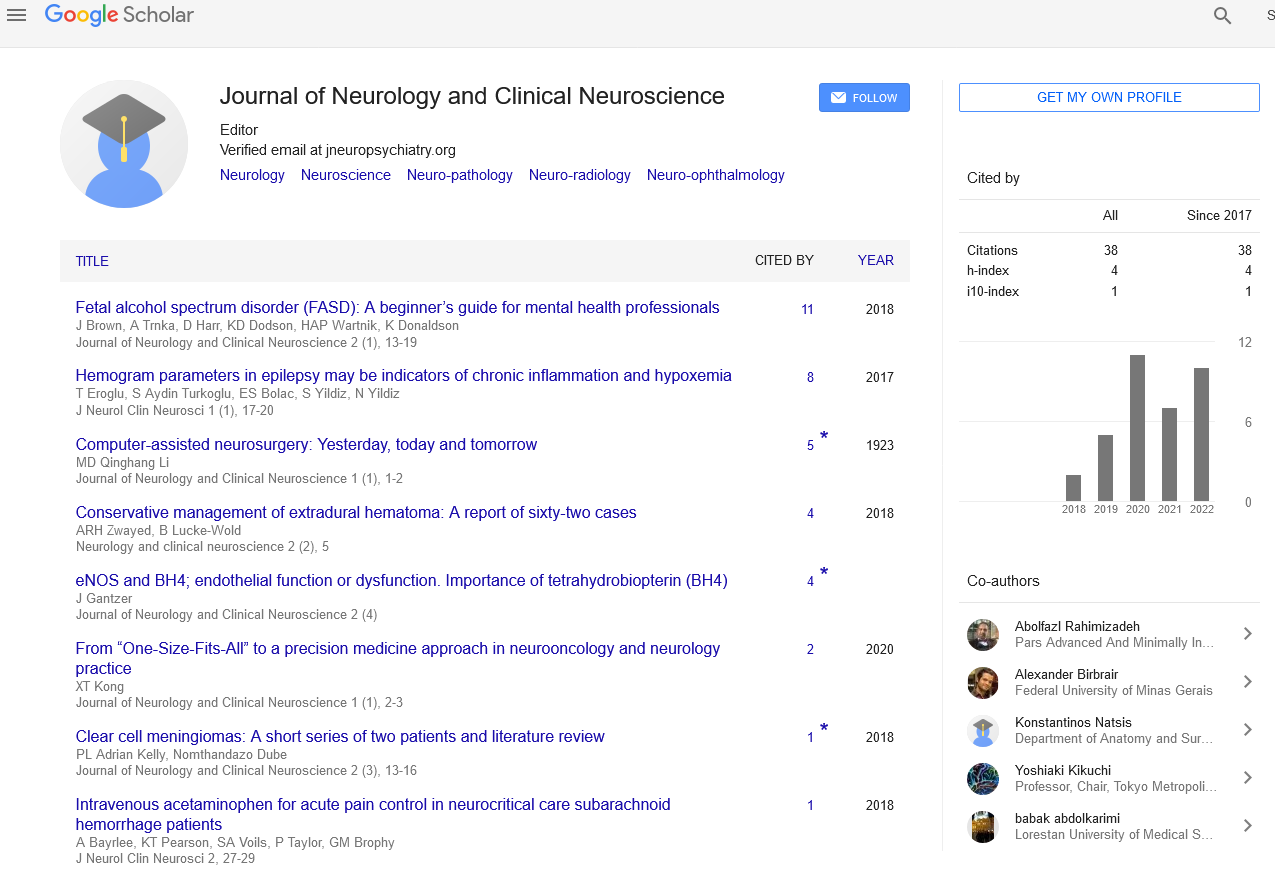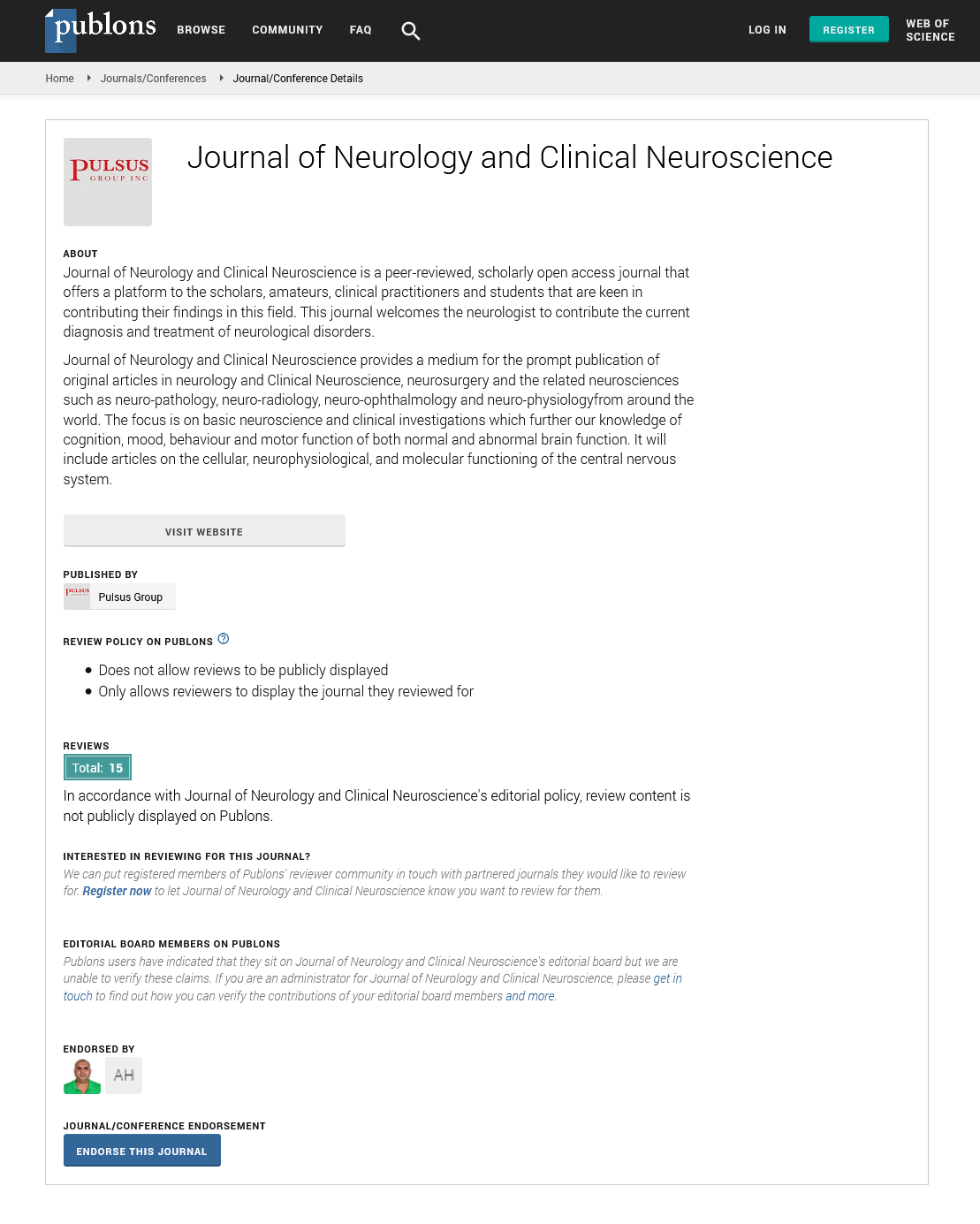Sign up for email alert when new content gets added: Sign up
Social cognition in young adults with Attention-Deficit/Hyperactivity Disorder
Joint Event on 4th International Conference on Neurology and Healthcare & International Conference on Clinical and Experimental Neuropsychology & 3rd World Drug Delivery and Formulations Summit
June 24-25, 2019 | Rome, Italy
Nirmayorlanda Garcia Garcia and Guillermina Yanez Tellez
Universidad Nacional Autonoma de Mexico, Mexico
Posters & Accepted Abstracts: J Neurol Clin Neurosci
Abstract :
Introduction: Attention-Deficit/Hyperactivity Disorder (ADHD) begins in childhood and persists in more than 50% until adult life, inducing difficulties in the work, academic achievement and personal relationships; some of these can be explained by Social Cognition Deficiencies (SCD). Outcomes of studies about SCD in ADHD have not been consistent due to poor control of variables such as the subtype of ADHD and comorbidities. The purpose of this study was to describe and compare the social cognition profile in young adults with and without ADHD.
Method: It is a cross-sectional, descriptive-comparative study with a sample of 10 young adults with ADHD and 10 healthy controls. As a measure for emotional processing, social reasoning and decision making the Social Cognition in Older Adults Battery (Cogsoc- AM) was used and to evaluate theory of mind, Faux Pas Recognition Test (Adult Version) was applied.
Results: Statistically significant differences were found in the domains of theory of mind (p=.004), emotional processing (p=.047), causes (p=.003) and social judgment (p=.009).
Conclusions: The group with ADHD showed significantly lower scores in specific domains of social reasoning (causes and social judgment), failures in emotional processing (specially in negative expressions) and theory of mind compared to the healthy control group. SCD may be the cause of troubles in their personal relationships.





